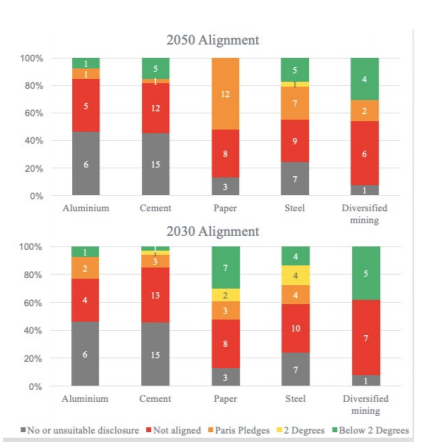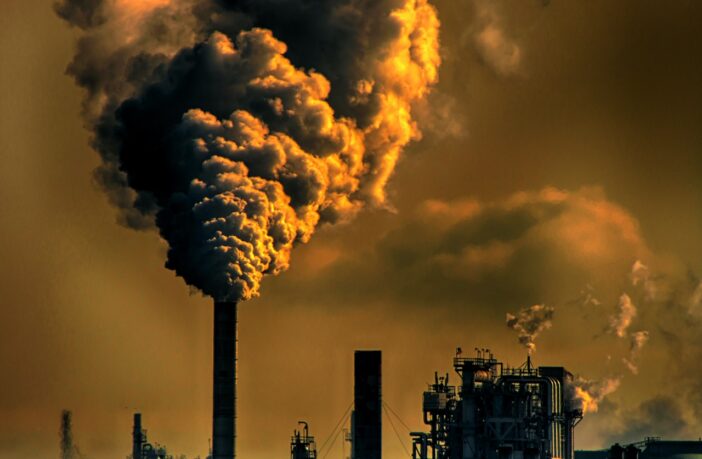A just-published report from the Transition Pathway Initiative has highlighted how industrial companies are failing to hit the targets that would enable them to achieve net zero goals by 2050.
The report concluded seven ‘hard to decarbonise’ industrial sectors of diversified mining, steel, cement, paper, aluminium, chemicals, and other industries are responsible for over nine gigatons of annual CO2 emissions, roughly 25% of total energy emissions. Further just 16 of 111 (14%) large publicly-listed industrial companies are aligned with an emissions reduction pathway that would keep global warming at 2°C or below. The combined market cap of the 95 industrial companies failing to align with 2°C or below by 2050 is over $856 billion.
The worry for the industries is that the pace of decarbonisation required in the industrial sector to meet Paris Agreement goals, speeds up significantly and requires drastic falls in emissions between 2030 and 2050.
The research analyses 169 companies in total including the likes of Arcelor Mittal and Rio Tinto. Of these 111 firms are analysed on Carbon Performance- to show if their emissions reduction plans align with the Paris Agreement. The 111 companies come from the aluminium, cement, diversified mining, steel and paper sectors – collectively industries deemed ‘hard to decarbonize’ as there is no straightforward low-carbon replacement technology for their products or processes.

The TPI research highlights the especially poor performance of the aluminium and paper sectors, where only one company in both sectors (Rio Tinto – specifically for aluminium) is aligned with a 2°C or below pathway by 2050.
This contrasts with steel where six companies are aligned by 2050 including the largest, Arcelor Mittal. 2.
The research, which was carried out for TPI by the Grantham Research Institute on Climate Change and the Environment at the London School of Economics,
Adam Matthews, Co-Chair of TPI and Director of Ethics and Engagement Church of England Pensions Board said, “Industrial sectors like mining and steel form the building blocks of the global economy and are some of the hardest sectors to decarbonize. But they account for more than 9 gigatons of greenhouse gases, and key decisions will be taken by companies and investors over this coming decade that will determine the role they will play in societies achievement of the Paris climate agreement.
“As we enter the transition decade these hard to abate sectors are critical to achieving net zero goals by 2050. Whilst it is concerning that so few industrial companies are ready, it is clear that new industrial processes based on circular economy principles give us a tipping point of technically viable, economically attractive solutions.”
Vitaliy Komar, Researcher at the Grantham Research Institute on Climate Change and the Environment at the London School of Economics, and a co-author of the TPI report added a note of optimism, “It will be a long road ahead for industrial sectors, but technological advancements are smoothing the path to a 2°C or below future, and heavy industry needs to gear up its climate progress. Low Carbon industrial technologies, such as Scrap-EAF in steel making, show the importance of establishing a circular economy and offer viable ways to phase out high-carbon processes.”
Photo by Chris LeBoutillier from Pexels




